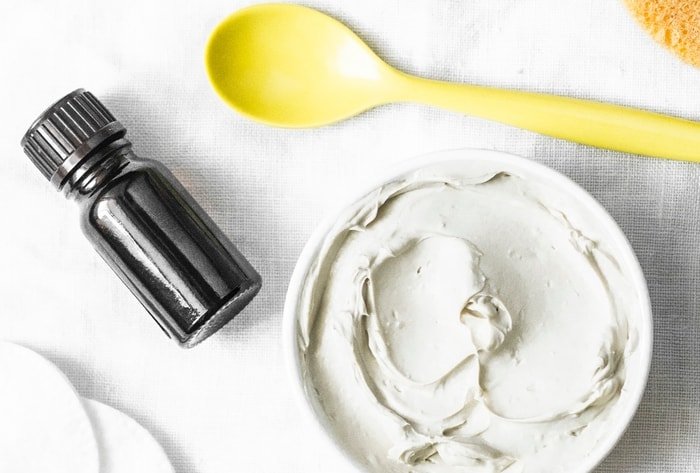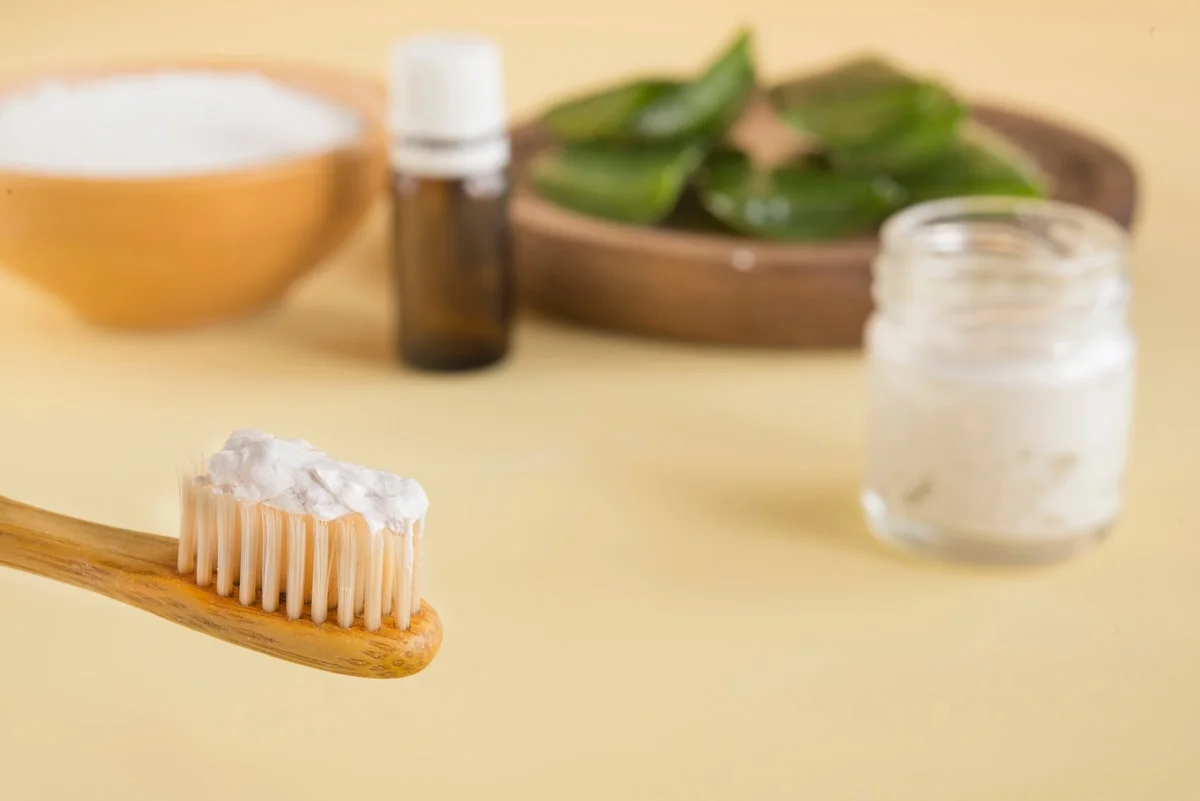Last Updated on October 12, 2024
Let us take a closer look at why tea tree oil for gums has fantastic benefits.
Recently, tea tree oil has been gaining popularity for its wide array of benefits. However, not many know that it can also benefit your gums? In fact, it is already a common ingredient in some kinds of toothpaste due to its gum health benefits.
Table of Contents
What is Tea Tree Oil?
Tea Tree Oil is also referred to as Melaleuca Oil. It is a type of essential oil that is produced by steaming Australian tea tree leaves.
When the medicinal properties of tea tree oil were first recognized in the 1920s, its raw material production was mostly found in the subtropical, swampy, low-lying grounds around Richmond and Clarence rivers in Southern Queensland and New South Wales. But, today, there is a prominent plantation of tea tree oil around New South Wales, Queensland and Western Australia as the demand for it increased due to its popularity.
The tea tree oil is produced from the leaves through a distillation process. It is a strenuous process because the yield of oil is 1 to 2% of the wet plant, which means it requires a lot of raw material to be able to get plenty of the coveted oil.
Some studies show that tea tree oil has antibacterial properties. It has shown a lot of potential for treating antibiotic-resistant bacteria. However, more studies are still being done to conclude its effectiveness against it. Also, several investigations show that tea tree oil has properties that combat fungi and viruses as well.
Applications of Tea Tree Oil for Gums Benefits
Now that you have a clearer picture of what tea tree oil is and its origin let us now dive into the main topic of this article: tea tree oil for gums. A study from the University of Western Australia showed that tea tree oil works well on gingivitis.
Gingivitis is a mild and typical kind of gum disease. Swelling, redness, and irritation of the gingiva are the common causes of it. When left untreated, it can cause irreversible effects such as tooth loss or periodontitis. However, according to research by Dr. Robert Hirsch from the University of Adelaide, tea tree oil showed evidence of reducing inflammation caused by gingivitis.
By using it in toothpaste and mouthwash, studies showed that it was able to reverse the subjects’ problems of gingivitis. However, several people showed allergic reaction side effects on tea tree oil, especially when it was on gel form. This is why if you intend to use it at home for your gums, it is a good practice to check first whether you are allergic or not.
Although tea tree oil may seem to help a lot with gingivitis and gum problems, it appears that its antibacterial properties are not very effective against tooth plague. Studies showed that it is not able to penetrate the plaque build-up and eradicate it. This is why if your problem is with your tooth itself, tea tree oil may not be the best solution for you.
Forms of Tea Tree Oil for Gum Care
Tea tree oils come in several shapes and forms. However, when using it for oral application, it is essential to always remember to spit it out as it may become toxic when ingested, especially in large volumes. Aside from that, tea tree oil is generally safe and easy to use. Let us take a close look at some of its forms for gum care applications:
● Toothpaste
Nowadays, there are plenty of kinds of toothpaste that contain tea tree oil extract. According to recent research, people who use toothpaste with tea tree oil extract showed a significant reduction in their plaque index. This means that after a while, there was an improvement in their gum health.

However, as mentioned above, it is essential to avoid swallowing anything that contains tea tree oil. Moreover, you should also check how much tea tree oil is present in the toothpaste that you will be using. Be careful of allergic reactions, too, as some people have shown the possibility of it.
● Mouthwash
Tea tree oil has been used as an alcohol substitute to make mouthwashes chemical-free. This is because of its antibacterial and anti-inflammatory features. Moreover, a study showed that tea tree oil has more power against plaque-causing bacterias than chlorhexidine, which is what is commonly used in mouthwashes.
Aside from that, using tea tree oil in mouthwash mitigates the strong alcohol like taste that it produces making it easier to use. However, it is essential to spit it off and avoid swallowing it as it can become toxic when ingested.
● DIY
If you prefer doing DIY toothpaste or mouthwash, you can do that with tea tree oil. If you intend to make a DIY mouthwash, all you need is a few drops of tea tree oil to a warm cup of water, and you are good to go. On the other hand, If you want to make DIY toothpaste, there are several good recipes online, which makes use of baking soda and other essential oils as well.
Final Thoughts
With the information mentioned above and the researchers presented, you can say that the tea tree oil is more than just a fad. Indeed it does have plenty of positive benefits, especially for gum care. However, it does require several precautions, such as knowing whether you are allergic or not and ensuring not to swallow it.
If you plan on using tea tree oil to help you with your gum, consider using tea tree therapy’s toothpaste with baking soda. It is easy to use, and it is affordable as well. If you prefer using tea tree oil as a mouthwash, the tea tree therapy’s mouthwash is a good choice as well.
Do you have any experience using tea tree oil for gum care? If you do, let us know in the comments down below.
Tea tree oil indeed has plenty of benefits when it comes to gum care. However, it is vital to take the necessary precaution as well.

Barbara is an environmental activist and sustainability advocate who loves living green and sustainable. She firmly believes in reducing her carbon footprint and has been making great strides towards achieving this goal. Barbara is a vegan and avid recycler and has been actively involved in community gardens and other green initiatives. She is passionate about spreading awareness about the importance of living in a sustainable and eco-friendly manner. Barbara is always looking for ways to make a difference in her community and beyond. She is a huge advocate for preserving nature and the planet for future generations.

